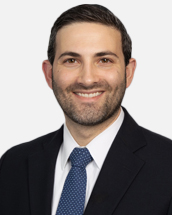In brief
On 18 January 2022, the Department of Justice (DOJ) and Federal Trade Commission (FTC) announced a joint public inquiry seeking comments on ways to “modernize” the federal merger guidelines and “strengthen merger enforcement.” The press release calls for public comments on a range of topics and highlights the agencies’ joint view that many industries across the economy are becoming more concentrated and “less competitive.”
In their statements, both DOJ Assistant Attorney General (AAG) for the Antitrust Division, Jonathan Kanter, and FTC Chair, Lina M. Khan, announced an intention to “overhaul” the 2010 Horizontal Merger Guidelines and conduct a broad-based review of the 2020 Vertical Merger Guidelines.1 Emphasizing the need for public participation and engagement, they hope to finalize the review by the end of this year.
Contents
- Background
- Key Takeaways: Comments by FTC Chair Khan
- Key Takeaways: Comments by DOJ AAG Kanter
- Request for Public Input
- Next Steps
Background
Following the 9 July 2021 Biden Executive Order, which is intended to promote vigorous antitrust enforcement priorities in key markets, the FTC and the DOJ issued a Joint Statement declaring that they would review the existing merger guidelines to determine whether they are “overly permissive.” The FTC also implemented several measures, including rulemaking changes and broad authorizations, to spur more enforcement against “illegal mergers.” In announcing those changes, the FTC cited the “surge in merger filings” and the need to ensure merger reviews are more “comprehensive and analytically rigorous,” which we previously reported on here.
The FTC also voted to withdraw the vertical merger guidelines in September 2021. While the DOJ has not yet withdrawn those guidelines, DOJ AAG Jonathan Kanter noted in his statement on 18 January 2022, accompanying the FTC announcement regarding the joint review of the merger guidelines, “too much has been made of the purported divergence between the DOJ and FTC” and indicated that the DOJ “shares the FTC’s substantive concerns regarding vertical merger guidelines.”
Key Takeaways: Comments by FTC Chair Khan
Chair Khan raised three “critical” questions to be addressed:
- Do the current guidelines adequately account for the range of business strategies and incentives that drive mergers & acquisitions such as “moat-building or data-aggregation strategies by digital platforms, or roll-up plays by private equity firms”?
- Do the guidelines adequately assess how mergers affect labor markets and workers, including consideration of factors beyond wages, salaries, and financial compensation or in assuming layoffs could be viewed as cognizable “efficiencies”?
- Are the guidelines “unduly limited” with respect to the kinds of evidence considered, and should the Agencies distinguish what types of evidence may be considered depending on the industry or in evaluating “non-price” effects?
Key Takeaways: Comments by DOJ AAG Kanter
AAG Kanter also outlined several “areas of interest,” offering the following observations and issues for consideration:
- Whether the current approach focuses on mergers that “substantially lessen competition” to the detriment of analyzing mergers that may “tend to create a monopoly.”
- Whether the current approach of bifurcating effects into “vertical” and “horizontal” categories is appropriate or whether a more “multidimensional” approach should be considered to account for “market realities” as “often transactions don’t neatly fit into” horizontal and vertical categories.
- Whether, the existing guidelines “overstate the potential efficiencies of vertical mergers and fail to identify important relevant theories of harm.”
- Whether, “market realities” should do more to drive analysis given that “the static formalism of market definition may not always be the most reliable tool.”
- Whether there are other tools that could be relied on instead of market definition, such as head-to-head competition and other indicia of market power, to analyze mergers.
- Whether Agencies should “more thoughtfully consider competition within a market or for a market” accounting for the fact that “stacks or clusters of component products and services often come together to drive both digital and physical supply chains.”
Request for Public Input
Both Chair Khan and AAG Kanter encouraged comments and specifically asked for input on the following areas of inquiry:
- Should merger thresholds be modified to improve enforcement, and might certain metrics or qualitative factors trigger presumptions of competitive harm, and what evidence should be used to address the accuracy of such presumptions?
- What are reliable metrics to account for non-price competition, and when might direct evidence of a transaction’s likely competitive effects eliminate the need for a separate market definition analysis?
- What amendments to the guidelines are required to account for the potential future significance of nascent competitors
- How can the guidelines better address the issue of buyer power, and what amendments are appropriate to account for the impact of mergers on labor markets?
Next Steps
Notably, in a subsequent address on 24 January 2022, to the New York State Bar Association’s Antitrust Section, AAG Kanter announced that the DOJ would pivot to pursuing injunctions as the presumptive remedy for anticompetitive transactions, instead of negotiated consent decrees. Kanter also noted his skepticism toward partial divestures in merger settlements, and declared that going forward the agency will pursue structural remedies rather than behavioral remedies in conduct cases where possible.
We will continue to monitor relevant statements, actions, and initiatives, and will provide pertinent updates.
In the interim, we are available to respond to any specific questions you have about how these developments may affect your business and M&A strategy.
1 While the FTC has rescinded the 2020 Vertical Merger Guidelines, the DOJ has not yet followed suit.









